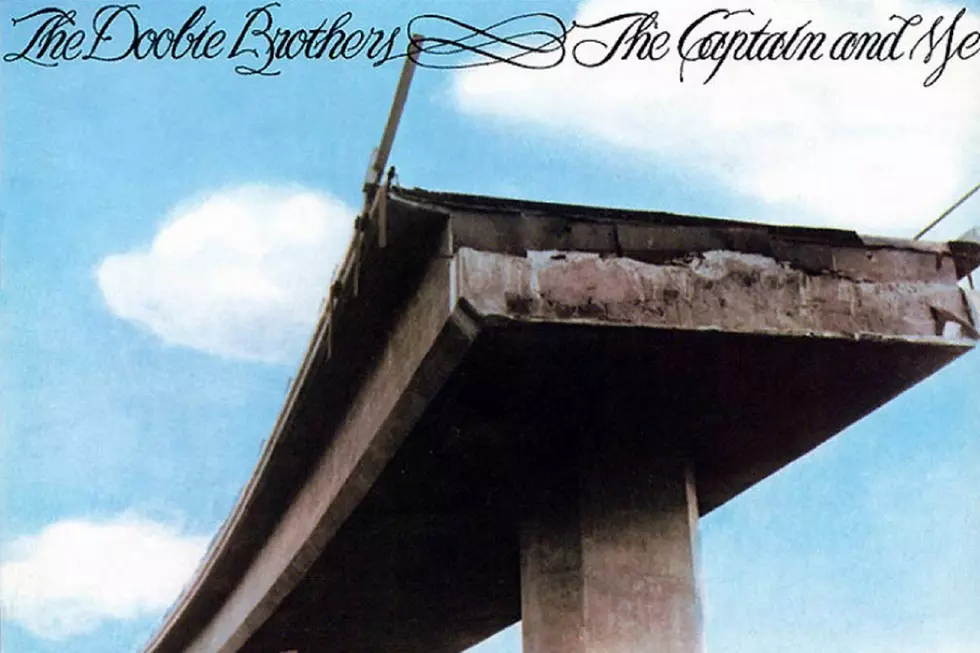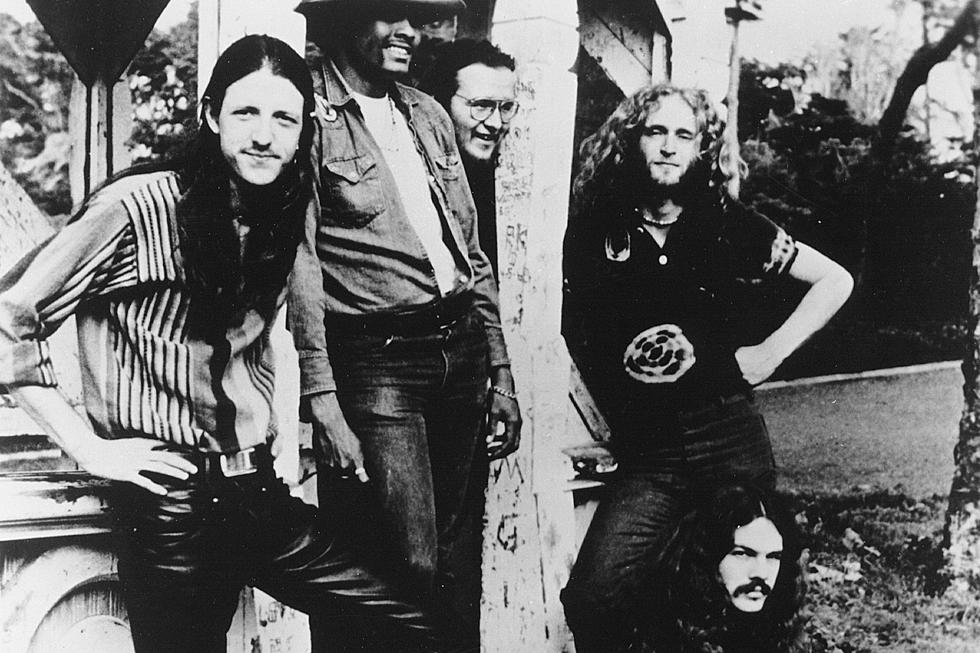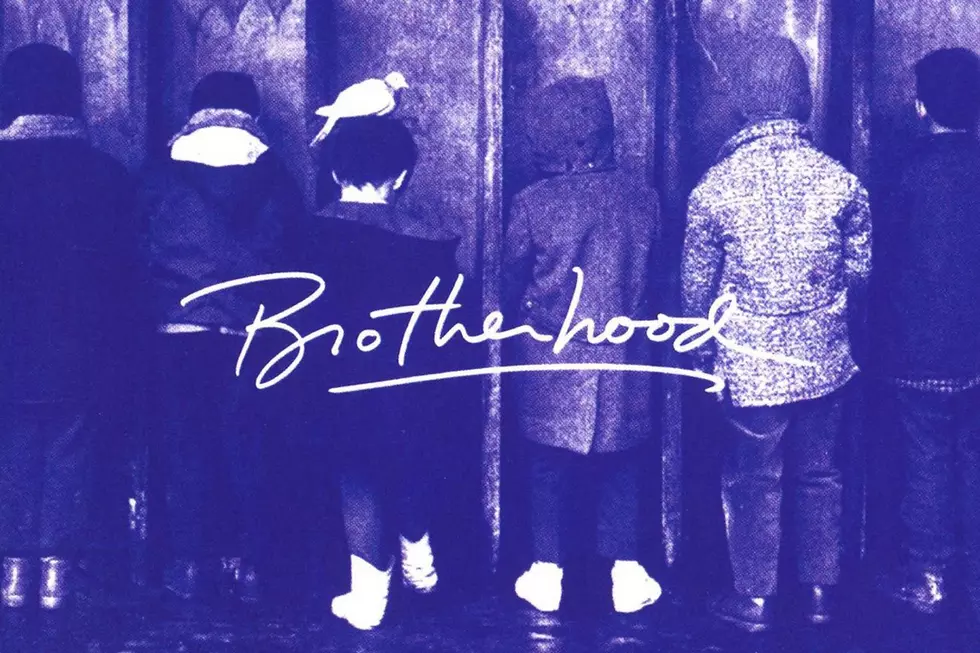
Doobie Brothers’ Tom Johnston Looks Back: Exclusive Interview
In the beginning, it was just a place to lay his head down at night.
But looking back now, the $40 the Doobie Brothers' Tom Johnston spent each month to rent a room on 12th Street in San Jose, Calif., ended up being a sound investment. “That’s where I wrote “Listen to the Music,” that’s where I wrote “China Grove,” probably “Rockin’ Down the Highway” and several other tunes that I can’t even think of right now,” he tells Ultimate Classic Rock. “Just on an acoustic guitar, is where it all started.”
He still has vivid memories of coming up with “China Grove"'s famous opening guitar riff, a song that found a home on 1973’s The Captain and Me. Once he had the chord structure and the basic idea of how it was going to go, he didn’t waste a moment, even though it was late at night.
“I went and grabbed [Doobies drummer] John Hartman, who also lived on 12th Street with me,” Johnston remembers. I said, ‘We’ve got to do this electrically, man. This is an electric song.’ I knew it was a power rock song. So we went downstairs and woke up all of the neighbors and put the master [volume] on 10 and went for it.”
At the time, Johnston recognized “China Grove” as “kind of a different direction” for the band. “Not that we didn’t play rock and roll before, but that one really had a distinct feel to it.”
Johnston and the Doobies will play The Captain and Me, as well the album that came out the previous year, Toulouse Street, in their entirety, performing both records each night as part of a special engagement at the Beacon Theatre in New York City. They may even do more shows like this in the future, depending how well these turn out. "If that turns out to be something that people like, we’ll probably do a couple of other albums," he says.
Those two albums showcase the distinct songwriting styles of Johnston and fellow singer and guitarist Patrick Simmons and the different elements each brought to the group. “What made the sound of the band to begin with, was his finger-picking and songwriting, as well as mine -- which was coming from a total other direction, which was more R&B and blues and rock 'n' roll,” Johnston explains.
“He wrote rock 'n' roll songs as well, but there are a few songs, like ‘Long Train Runnin’,’ and in spots on ‘Listen to the Music,’ where finger-picking and that rhythm structure are melded together, and that’s something that nobody was doing. We didn’t do it consciously, we just did what we do. We were fortunate enough to have that work, and that to me has always been kind of the signature of the band. And the harmonies.”
The Beacon shows will be a “unique” experience for fans, Johnston promises, that will include all of the songs from both albums, with additional selections from the Doobies' extensive catalog. We spoke with Johnston as he was revisiting the material -- which he called a “super-challenging” process. “It’s a lot of songs, some that we’ve never played live ever," he says. "So we’re learning how they go.”
There’s also some new music in the works from the Doobies. They’ve been writing songs for a possible EP. “You’re going to spend a lot of money and time [making a full album] and undoubtedly have [new] tunes that people will [regard as], the modern version of a deep cut,” he notes.”They’ll listen to them and they’ll like ‘em and that’s great, but then there’s going to be a couple of commercial ones, hopefully, for lack of a better word, to get out there. It doesn’t mean it has to be a sell-out, totally, it just has to be commercial. You know, the old saying still holds true and it’s always been true and it’s true today, a good song is a good song.”
Listen to the Music, Ted
"I’m famous for having called [Doobies producer] Ted [Templeman] up at three in the morning and saying, 'You’ve got to hear this. This is a single.' Which he didn’t appreciate. But he listened to it, bless his heart, and he said, 'Maybe. It needs a couple of changes.' I said, 'I don’t think so, man. I think this is good just the way it is.' I’ve never been one to predict singles, but I felt that way about that one song. So we got in the studio and we didn’t change it around. We kept it just the way it was. We added a lot of stuff, in the harmonies.
"For once, I had all of the lyrics and the track. I was famous for coming in with tracks and no lyrics. I would write them in the studio -- sometimes I’d come in with words, but a lot of times, I would come in and we’d just do the track and then I’d write the words. Because I’d just get a feel for how it sounded in the monitors in the studio and do them then. But 'Listen to the Music' was done when I walked in, for all intents and purposes."
They Had Two Drummers but Often Just One in the Studio
"We very seldom had two drummers playing on a track. Most of the time, it was just one drummer on the actual track, just to get it tighter. The one song I can think of right off the bat is 'Without You,' that’s two drummers. 'Road Angel' [from 1974’s What Were Once Vices Are Now Habits] might have been. I’m not sure if it was or not. I know that 'Without You' definitely had two drummers. We cut it live, like we were playing at a gig."
'Long Train Runnin’' Started Out as a Jam
"We just played it and I would make up different words every night while we were playing it live, because we were in clubs and stuff and it didn’t really matter. The only thing we had was 'Without Love, where would you be now?' Ted said, 'Why don’t you finish that up? Let’s cut that.' I said, 'Man, it’s just a jam. It’s fun to play, but I don’t know that it’s going to make a great song on an album.' I was wrong, he was right. He said, 'You should turn this into a tune and we’ll arrange it in such a way [that it works].' But you know, it really didn’t get rearranged that much. It just needed words. It really needed lyrics! So I finally went and wrote ‘em down. He said, 'Why don’t you write it about a train?' I said, 'Okay, that sounds good, I like that.'
"I went in and wrote the words, as they are now, and then the whole train motif [came after that]. We put the lyrics on and got the harmonies, and I played the harp solo -- which is something we weren’t doing live -- and it came together. It’s funny, because it went higher and was more successful than 'Listen to the Music,' as far as radio play. Everybody loves it live to this day. It’s a big home run. You’ve got 'Black Water,' 'Long Train Runnin’,' 'China Grove' and 'Listen to the Music' -- those are the ones that you play every night, because the people would be pissed at you if you didn’t!"
They Added Synthesizers to 'The Captain and Me'
"It wasn’t my idea, it wasn’t anybody’s idea in the band. It was Ted’s idea. I don’t know if he was thinking about synths in particular or a sound. The sound is one of those things that people chase all of the time and you can only get them off certain instruments. The guys that were working with Hendrix, Robert Margouleff and Malcolm Cecil, they were in the studio with us, just to set that up. They set it all up and I just played it on a keyboard. So those synth horns that sound kind of like Roman trumpets, that was something that they created sound-wise with that instrumentation. That synth, it might have been an ARP. The cool thing in those days is that everything was experimentation.
"You were always trying stuff out, something that you’d never done before. To me, that was a lot of fun. I really enjoyed that. There’s a lot of bands that became synth-oriented, so you would hear all of this stuff based around that as the main instrument. Not the same thing. These were used as a color. You still had the guitars, something like 'Natural Thing,' for instance, it was all about, it wasn’t funky, but it was an R&B-based rhythm, but it didn’t sound R&B at all, the way it was colored, the tune. Those work very well with that. We also used them on 'Ukiah' and they worked well for that as well."
Those Doobies Harmonies
"Everything was live up until we did the first album, and then the first album, as most people know, wasn’t exactly a huge success. But it was our first time in the studio. It was a big deal to us. Hearing the harmonies was kind of magical, not because we hadn’t heard harmonies before, because we had, but certain voices blend together a certain way and at that time, we had a different bass player, but the harmonies were still there. It was all about the three part harmony thing and in some cases, two, going into three. Hearing them in the studio, hearing anything in the studio at that point, because we hadn’t ever done that, was kind of mind-blowing."
Top 100 '70s Rock Albums
More From 100.7 KOOL FM










